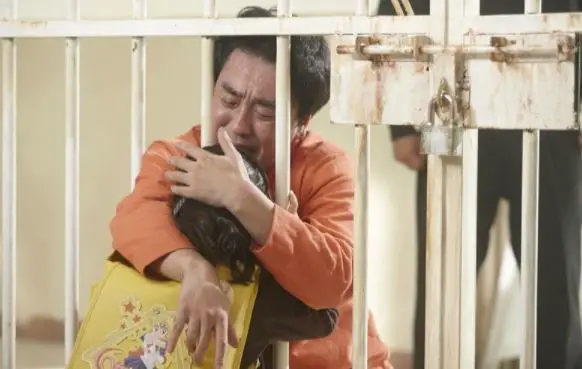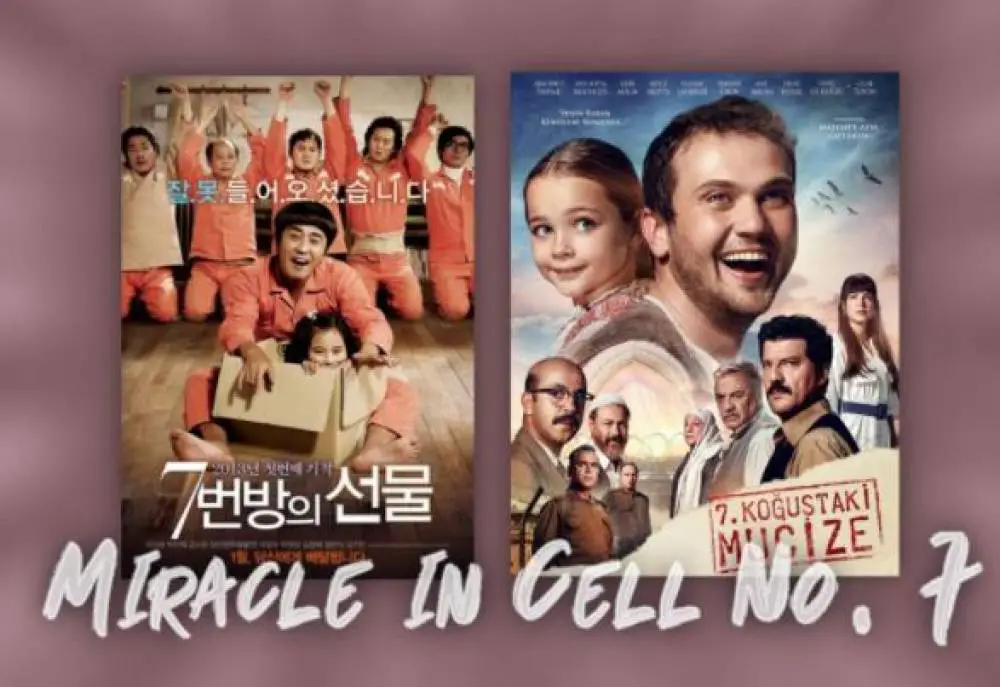Warning: Spoilers Ahead.
Turkish film Miracle In Cell No. 7, directed by Hanung Bramantyo, is an adaption of the South Korean original. As the nation is going through a lockdown and the COVID 19 pandemic, they are more engrossed in Netflix, trying to find something interesting to watch.
Miracle in cell no.7 is also one of the movies getting ranked up to become Netflix’s top trending movies.
Let’s find the storyline of both versions and how the ending is different!
Miracle in Cell no.7 Streaming details
The South Korean version of Miracle in Cell no.7 was directed under the direction of Lee Hwan-Kyung. The 127 minutes film was released on 8th March 2013 and got 89 percent on the Rotten Tomatoes website.
Meanwhile, the Turkish version adaptation of the South Korean version was directed by Hanung Bramantyo and was released on October 10, 2019.
The story is about a mentally challenged father and a six-year-old daughter.
The movie started with the father and daughter looking at the sailor moon backpack/Heidi backpack.
The six-year-old desires to have a sailor moon backpack/Heidi backpack; unfortunately, the father does not have enough money to purchase it but promises his daughter to buy it after making money.
Later, when the father makes enough money to buy the bag, he goes to the shop but finds the bag in another buyer’s hand. He requests the child to give the bag, but the child was reluctant to give it.
A few days later, the father meets the same girl, the police commissioner's daughter, and tells him about another shop selling the same bag. The girl told him to follow her to show him the shop, and he follows her instruction.
However, in both the movie, the little girl falls hit her head and dies.
On the death of the girl, both fathers are wrongfully imprisoned for the murder of the girl. In both movies, the father is kept in prison no. 7, where their cellmates help them smuggle their daughter in prison.
The cellmates and other prisoners get touch by the bond of father and daughter and get convinced that the father was innocent of the charges against him. All prisoners come together to prove the father innocent and to halt the death sentence.
Why Is Turkish Version Different From Korean One? (Ending Explained)
Although the movie's storyline is the same, the Turkish director has slightly adopted a different ending.
In the Korean version, despite all cellmates and prisoners' efforts, they fail to prove the father innocent was hung to death (sad ending). However, when his daughter gets older, she becomes a lawyer and successfully proves her father innocent.

Meanwhile, in the Turkish one, the father is assisted by other cellmates, reunites with his daughter, and sail away on a boat to start a new life in a different country (happy ending).

Cast & Characters
In the Korean version of Miracle in cell no.7, the mentally-ill father, Lee Yong Goo, was played by Ryoo Seung-Ryong, and the daughter, six-year-old Ye Sung, was played by Kal So-won and adult - Park Shin Hye.
Other cast members are;
- Oh Dal-Su as So Yang-ho
- Jung Jin-young as Jang Min-hwan
- Park Won-sang as Choi Chun-ho
- Kim Jung-tae as Kang Man-beom
- Jung Man-sik as Shin Bong-shik
- Kim Ki-Cheon as Old man Da-do
On the other hand, in the Turkish version, the role of father Memo was portrayed by Aras Bulut İynemlin. The daughter ova's role was portrayed by child actor Nisa Aksongur and Hayal Köseoğlu (as an adult).
Other cast members are:
- Galile Toyon : Fatma Nene
- İlker Aksum: Askorozlu
- Mesut Akusta: Yusuf
- Deniz Baysal: Mine
- Yurdaer Reads: Aydin
- Yıldıray Şahinler : Hafız
- Sarp Akkaya: Nail
- Deniz Celiloğlu : Faruk
- Ferit Kaya: Ali
- Serhan Onat: Selim
- Emre Orphan: Mirror
- Gülçin Kültür Şahin : Hatice
- Cankat Aydos: Fugitive Soldier
- Dogukan Polat: Tevfik
Difference & Overall Opinion
Well, I watched the Korean version first, and that movie touched me so hard and made me cry. The movies really have the ability to stir the emotions of the audience. As I googled to know more about the movies, I came across the Turkish version and got curious to know more about the Turkish version. However, I did not shed many tears while watching the Turkish version; the Turkish one has more story than Korean.
In the Korean version, nothing is disclosed about the child's mother, and the whole movie is based in one city. In the Turkish version, the father and daughter are lived with the grandmother and also talks about the mother who died.
Moreover, in the Korean version, the girl dies after falling and getting hit on the head by a rock, and in Turkish, she dies after falling from a roof and gets drowned.
And about the ending, you are well-acknowledged!
Both movies are great in their own way, and the Korean one was short but too emotional, whereas the Turkish narrated more stories and had a happy ending.
On a positive note, both movies showed the positive side of prison; not all prisoners are bad.
I recommend you watch both the movies; they are definitely worth the watch. And also, while watching, ensure you get a box of tissue because tears will flow like living water.


